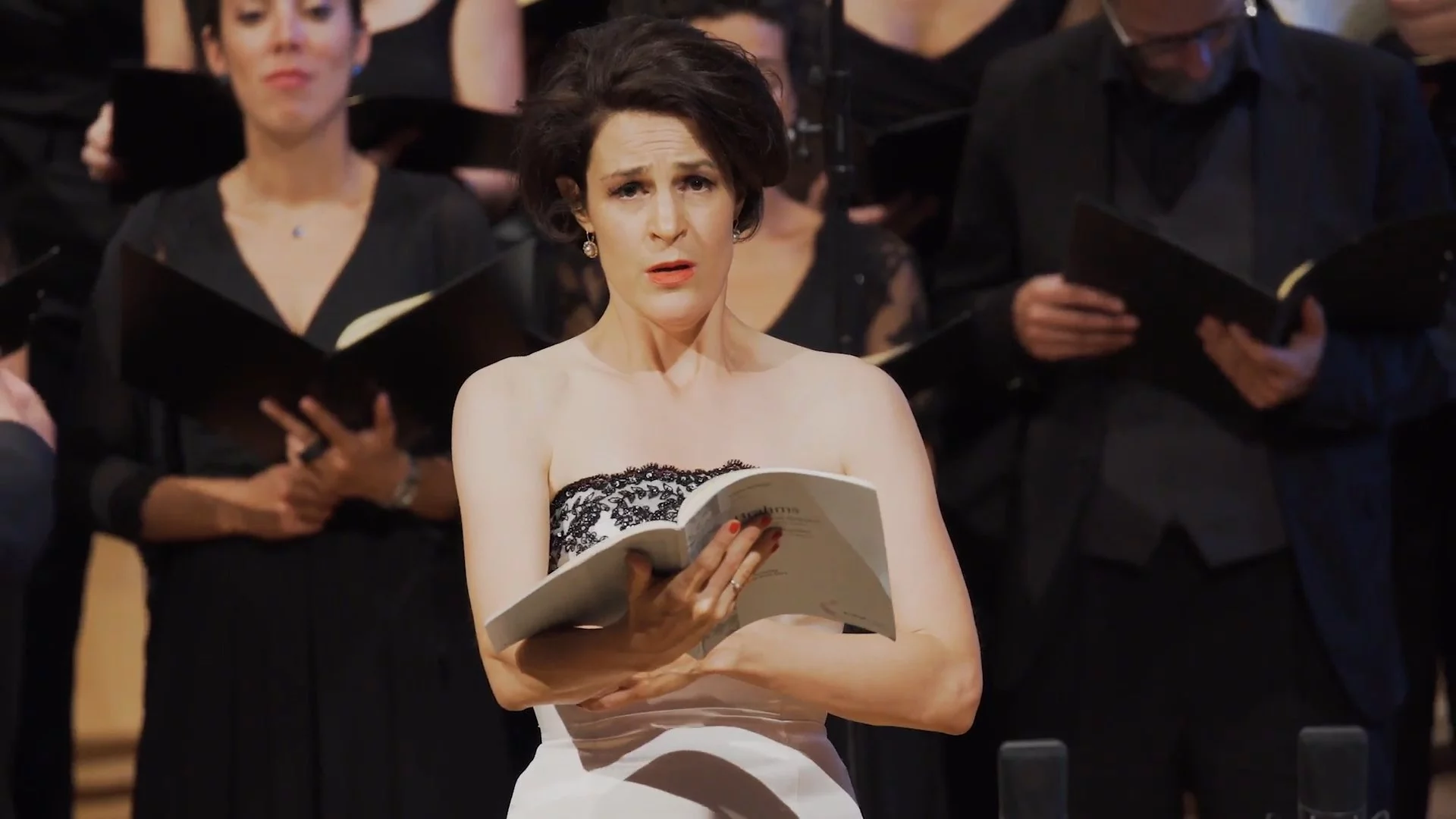Brahms' masterpiece
Rachel Harnisch, soprano
Thomas E. Bauer, baritone
Ensemble Vocal de Lausanne
Céline Monnier, Pierre-Fabien Roubaty, piano
Daniel Reuss, conductor
Johannes Brahms (1833-1897)
«Ein Deutsches Requiem» op. 65 (version for solo voices, choir and 2 pianos)
Recorded at Saanen Church, 12th August 2018.
Ensemble Vocal de Lausanne: Brahms’ A German Requiem
This concert offers a more intimate version of A German Requiem with two pianos and the Ensemble Vocal de Lausanne, one of the best in Switzerland, founded more than half a century ago by Michel Corboz and led by Daniel Reuss since 2015. Rachel Harnisch (soprano) and Thomas E. Bauer (baritone) lend their voices for this beautiful romantic requiem.
The “human requiem”
Very different from the Catholic Mass for the Dead, in A German Requiem Brahms emphasized the humble and reassuring convictions of Luther’s disciples – followers from Northern Germany who preferred to console the living instead of praying for the dead. It is said that Brahms wanted to replace the word “German” with the word “human” in the title, which definitely would have made the composition difficult to classify!
The sources of A German Requiem
Brahms was a very meticulous composer by nature, and he accorded particular care to the selection of texts that he set to music. Drawing from the New Testament as his source for A German Requiem, he employed only passages marked by hope, setting them to notably optimistic music, often moving with irresistible force from the “traditional” minor key to a major key.
In any case, the name of Christ never appeared in the first version of this A German Requiem, an indication of his conviction that the Bible was primarily for “artistic” inspiration. However, since he did not intend to shock his audiences, shortly after the first performance he added a central movement (the fifth) bearing the Christian message that had been missing. Brahms had intended to create a piece that would compel the listener to remain alert and inquisitive, original in the sense that he felt every artistic work should be. Like the First Piano Concerto, the genesis of the Requiem took nearly fifteen years. The oldest passage of A German Requiem “Denn alles Fleisch” goes back to a sonata that Brahms had composed just after his good friend Robert Schumann had attempted suicide. After Schumann’s death, Brahms found an outline of a requiem that Schumann wanted to compose. Brahms took it upon himself to bring this idea of a German Requiem to an end and composed the masterpiece A German Requiem.



